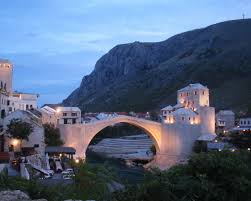I left Croatia to the north and mounted a bus that wound through the misty, majestic mountains of Bosnia into Sarajevo. As the sun rose over the historic valley, I saw pock-marked homes that still lay demolished, twenty years after the war ended. Here I was, at the interface of great religions and empires, where a young Bosnian nationalist’s assassination of the Archduke Ferdinand, the maximum representative of the Austrian-Hungarian Empire, supposedly sparked WWI. But no individual sparks a war. Wars are politics by other means with major powers vying for control of wealth, markets and other geo-political interests. Respiring centuries of history, I began to question and dig in order to understand what brought war to this wondrous sacred land, once known as Yugoslavia, beginning in 1991 and continuing through 1999.
NATO’s War
Twenty years ago, the forces of NATO, led by the United States and Germany, waged war on the people of Serbia. Over the course of 78 days in 1999 — from March 24th to June 10th — NATO dropped 79,000 tons of bombs and 10,000 cruise missiles on Serbia, causing enormous casualties to the civilian population and extensive damage to the economic infrastructure. This was the culmination of the dismemberment of a global colossus, Yugoslavia was no more. Now, Slovenia, Croatia, Serbia, Bosnia, Montenegro, Macedonia and now Kosovo were left to fend for themselves. 50,000 U.S. and NATO troops now moved unimpeded into Kosovo, an area that was southern Yugoslavia.
The corporate media spoon-fed the world a false, facile explanation to justify its all-out assault on the sovereignty of the Balkan nations. They focused solely on what they portrayed as the sudden resurgence of ancient bloodletting feuds among the nations of Yugoslavia, select victimhood and the need for the West to come to the rescue. There is no question that narrow nationalism and local misleadership led to massive bloodletting. The BBC documentary, “The Death of Yugoslavia” methodically traces the slow disintegration of Yugoslavia. However, these were internationalized civil wars, just like Libya and Syria today. The mainstream media repeated the “ancient nationalist sparring” perspective ad nauseam because it reinforced a grim, generalized view that the “victimized” nations within Yugoslavia “needed” Western intervention. This article revisits the Western military powers’ flagrant violation of international law and what lessons anti-imperialists can draw today from the dismemberment of Yugoslavia.
Torn Apart at the Seams
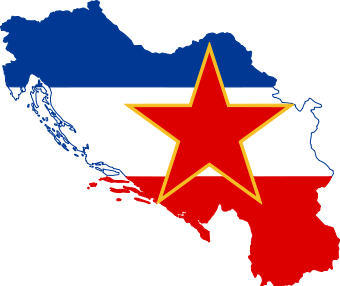
The victors of WWII hoped to sink their fangs into the Balkans since 1946 when the Partisan Detachments of Yugoslavia, led by Marshal Josep “Tito” Broz, defeated the Nazis and established the Socialist Federal Republic of Yugoslavia.
The son of a Croat father and Slovenian mother, Tito grew up in deep poverty. He became a metal worker and worked for the German Benz car factory. He rose to the leadership of the labor movement, the Partisan army, the revolutionary party and the workers’ state. What made him and the other partisans a special leadership was their ability to unite the different nationalities of Yugoslavia behind the idea of a strong, peaceful multinational state.
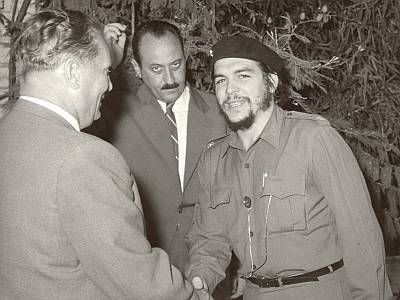
The profiteers of the West knew that it was only the Yugoslavian fortress — the idea of a strong, united people personified in the principled leadership of The League of Communists of Yugoslavia — that protected the individual nations —Slovenia, Serbia, Croatia, Bosnia and Herzegovina, Macedonia, Montenegro and ethnic Albanians who were spread throughout the south — from complete re-penetration by foreign capital. The collapse of the Soviet Union in 1990 and the socialist camp left the door wide open for Western maneuvers to rip apart one of the few self-determining and socialist countries left on the global map.
Yugoslavia’s demise was hastened by outside interference which dictated that this centrifugal force had to be smashed. Behind the scenes, foreign meddling stoked the flames of ethnic hatred by encouraging the independence of Slovenia, Croatia, Bosnia, Montenegro, Macedonia and Kosovo.
In 1991, President George Bush and Congress passed the Foreign Operations Appropriations Bill which cut off loans, credit and trade for any part of Yugoslavia that did not declare its independence. Italy promised Montenegro $40 billion in “aid” if it went independent. Germany coddled the Croatian bourgeoisie, enticing them with investment promises. Kosovo was built up as “the capital of the Pentagon in the Balkans” with U.S. Turkish and Albanian joint forces trained and supported the Kosovo independence movement.[1] Meanwhile, Serbia — the most stubbornly independent republic with the deepest ties to non-Western countries, namely Russia — was subjected to sanctions. As a result, the per capita Serbian income was reduced from $3,000 in 1990 to $700 by 1993.
Yugoslavia & a Correct Evaluation of the National Question
The Yugoslavian economy was not classically socialist but it retained features of a planned economy unacceptable to international high-finance.
Slobodan Milošević, the President of the Federal Republic of Yugoslavia, and his leadership became imperialism’s principle obstacle. The other nationalities had brokered deals with their imperialist sponsors, retreated into their own fiefdoms and were open for business. Milošević had to go. Consequently, he became the latest anti-Christ needed to validate the unleashing of a full-scale NATO war. Milošević’s intransigence before NATO was his true crime, far worse in the eyes of the West than the rapes, murders and massacres that occurred under his command and the command of every warring party in the 1991-92 conflict that saw over 200,000 killed and four million displaced. The war for Kosovo in 1998 and 1999 saw similar atrocities committed by both the Serbians and the Kosovo Liberation Army (KLA). Noam Chomsky’s book Manufacturing Consent explains why some victims are worthy while others are not.
Only under socialism was it possible to unite all of the nationalities on the basis of equality and common ownership of property. Serious efforts were made through Affirmative Action programs to invest in the development of the historically more underdeveloped southern regions of Bosnia, Montenegro and Kosovo. The League of Communists of Yugoslavia in each republic forbid their leadership and rank-and-file from having a nationalist orientation. The ideals of internationalism and working-class unity were the bedrocks of the entire social system. For a more-in-depth evaluation of Yugoslavia’s history, economy and dedication to equality, Richard Becker’s article is insightful.
Socialists respect the right of every oppressed nation to self-determination. But we oppose those forces who claim to speak in the name of a nation but are really acting in conjunction with U.S. imperialism.
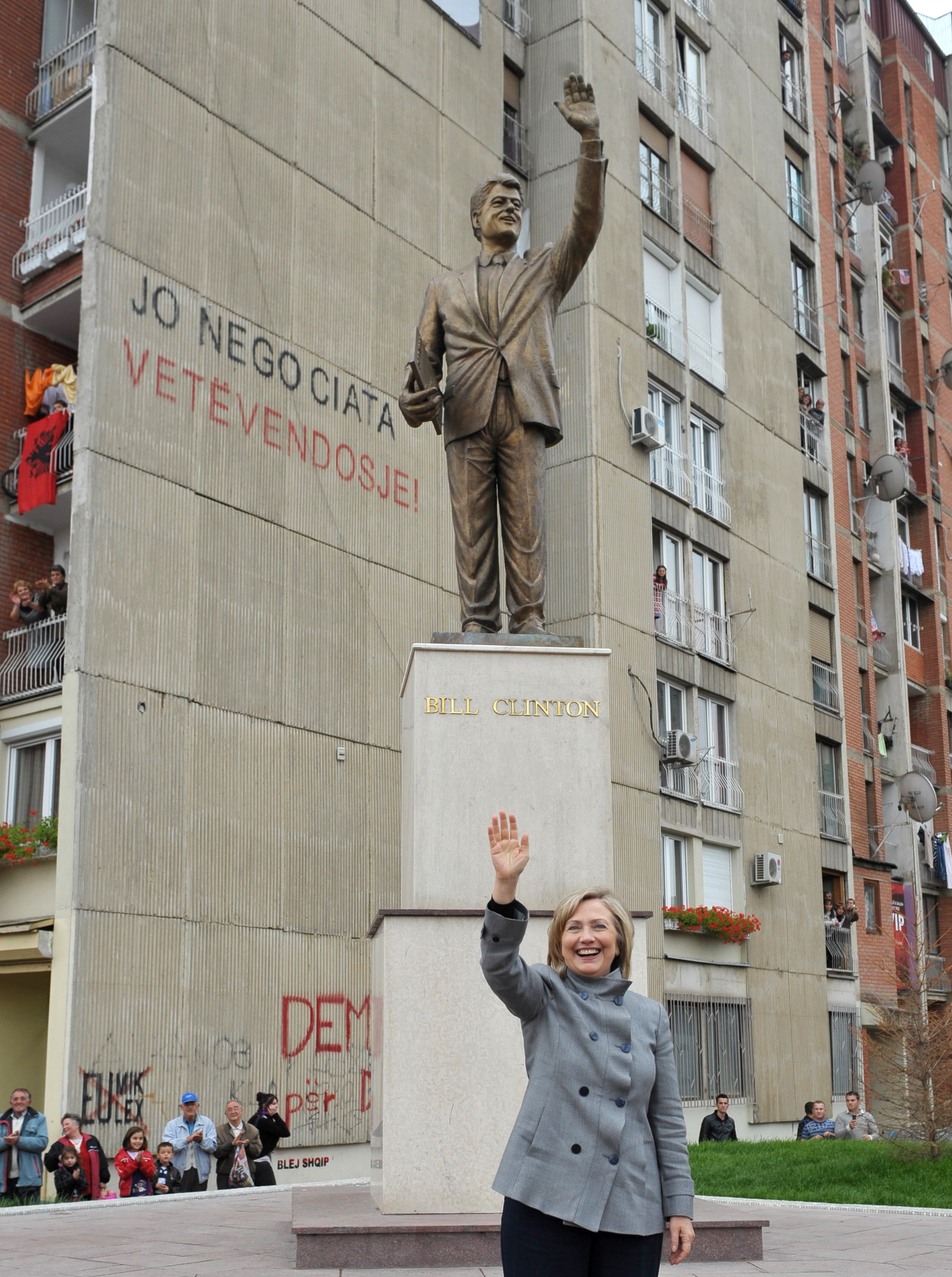
The separatist claims of the NATO-supported, fascist Kosovo Liberation Army were in reality against the interests of the working class of all nations. As Kosovo — a region rich with mineral wealth — was pried away from Serbia, Serbia was subjected to a 78-day bombing spree. Gregory Elich — author of Killing Democracy: CIA and Pentagon Operations in the Post-Soviet Period — detailed NATO’s intentional targeting of auto factories, civilian infrastructure, and the Chinese embassy.
Kosovo became the host of Camp Bondsteel the U.S. and NATO’s largest base in the Balkans where 7,000 foreign troops continue, to this day, to oversee the colonial project. U.S. and NATO troops parade around George Bush Street, Bill Clinton Boulevard, Woodrow Wilson Street in Pristina, Prizren and the rest of Kosovo as heroes. Kosovo celebrates July 4th as if it were a national holiday. On the side of one of Pristina’s largest skyscrapers, a massive banner thanks the U.S. for Kosovo’s freedom. A New York Times article outlined the business interests that U.S generals and officials, like Madeline Albright and Wesley K. Clark pursued in Kosovo post-war. Kellogg, Brown and Root, KBR Inc. — a military subsidiary of Halliburton — received the massive contract to build and supply the base.
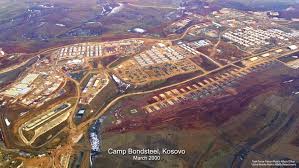
None of this foreign intervention negates the Kosovo Albanians’ legitimate gripes and right to greater sovereignty. The key point is the U.S. ruling class manipulated these genuine calls for greater autonomy in order to smash the Yugoslavian fortress.
In the words of capitalist ideologue Thomas Friedman; “The hidden hand of the market will never work without the hidden fist — McDonalds cannot flourish without McDonnell Douglas, the designer of the F-15.”[2] Kosovo — like Tibet, South Sudan, & the Kurds of Iraq (but not Turkey) offer an example of imperialism’s sinister manipulation of the question of national liberation.
Srebrenica: Sorting through the propaganda
Nazi propagandist Joseph Gobbles infamously said: “A lie repeated 1,000 times becomes the truth.” One-sided reporting simultaneously freed the U.S. proxy forces of blame while vilifying any impediments to their underlying designs. The most glaring example in the case of Yugoslavia was what the West called “the Srebrenica genocide.”
There is no question that the segregation of Muslims and the siege of the majority Muslim, Bosnian town of Srebrenica was horrific. But was it any more or less grisly than the Croatian ethnic cleansing of Serbian families in the Krajina region or the massacring of Serbs by Muslim warlord Naser Oric in the days leading up to the Srebrenica massacre? All sides committed mass murder, rape and other war crimes. Imperialism needed Srebrenica and the “pure” victimhood of Bosnia’s Muslims to justify their wanton destruction of the infrastructure and economy of Serbia. Scholars Michael Parenti and Diana Johnstone, among others, painstakingly documented the one-sided coverage to guilt trip the Western public into supporting the NATO war. As we have seen in Iraq, Libya and Syria, the pro-imperialist media is very adept at feigning concern for human rights. The U.S.’s wars of the 21st century are justified under the guise of “humanitarianism.”
Lessons Learned
Studying and understanding the dynamics of the dismemberment of Yugoslavia teaches us valuable lessons that we can apply to the empire’s ongoing wars of conquest across the world today. As the godfather of all war criminals Henry Kissinger reminds us, the U.S. “has no permanent friends or enemies, only interests.”
Although the ruling class has whipped up islamophobia to justify its imperial adventures in Afghanistan, Palestine and beyond and to rationalize the repression of dissent here at home, imperialism is not anti-Muslim across the board. The ruling class is far too cunning and “globalist” for this. In the case of Yugoslavia, one of their main proxies was the Muslim president of Bosnia, Alija Izetbegovic and the terrorist outfit, the Kosovo Liberation Army.
Izetbegovic served three years in jail for his support of the Nazi occupation of Croatia during WWII and later became an extremist advocate of Sharia law. Today it is common knowledge that the U.S. conspired with extremist, jihadist forces from Saudi Arabia, Iran, Albania and beyond to wage their proxy war in Bosnia. Professor Peter Dale Scott documents the West’s use of al-Qaida in Bosnia. He argues that the training of some KLA units in terrorist camps run by Osama bin Laden followed a long pattern also used by National Security Advisor Zbigniew Brzezinski in Afghanistan in 1979 to defeat the secular government of President Najibullah and the Progressive Democratic Party of Afghanistan. Not a word was uttered against the honor of the Muslim Bosnians and Kosovars because they were the “good guys” in this conflict. They needed a pure victim and a totally evil aggressor (Serbia) led by Satan himself (Milošević).
“Moral Combat: NATO at War” is one entry point into understanding the West’s relationship with the KLA. Tough the KLA commanders openly admitted their strategy was terrorism directed at the Yugoslavian police forces and the Serbian civilian population, the KLA could do no wrong in the eyes of their backers.
Through think tanks, academic conferences, professional analysts and paid experts, the warmongers constantly monitor dynamic situations. They shift alliances according to their interests. Imperialism has proven that it will renege on old partnerships and create new ones according to the moment.
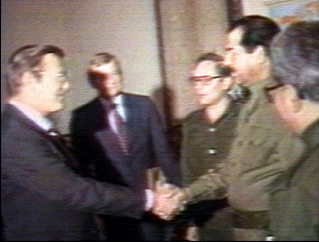
It is enough to remember that “bad guys” such as Manuel Noriega, Saddam Hussein and Osama Bin Laden were all once stooges of the U.S., when the forces they oversaw did the U.S.’s bidding. When it no longer served their interests to support them, the empire turned on them and converted them into the latest boogeyman (i.e. ISIS). Their crimes and human rights records then became convenient excuses to bomb, invade and occupy Panama, Iraq and Afghanistan which were all steps in the recolonization of these regions.
When the non-aligned Yugoslavia functioned as a buffer zone between the Soviet Union and the U.S. in the Global Class War, the IMF and the European banks were content to lend it money, drive another wedge through the idea of Soviet-Yugoslavian unity and keep it —even if only partially — in their sphere of influence.[3] With the rise of the unipolar world, this calculation changed. The U.S. and EU countries did not stop their war drive until the country was completely under its boot again.
Yugo-Nostalgia
According to studies by historians and sociologists, a high percentage of people today — spanning across the different nationalities — yearn for the unity and social stability guaranteed in the Socialist Federal Republic of Yugoslavia.[4]
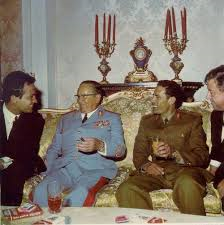
From Zagreb to Sarajevo to Niš, I found responses consistent with this sense of Yugo-nostalgia. Many citizens of the former Yugoslavia bemoaned the stripping away of people’s right to health care, a home, a university education, a job and social peace — and the concomitant privatization of these services. In their opinion, these maneuvers represented the “thirdworldization” of the Balkans, a return to a position of servitude they had valiantly overcome. According to an article in The Economist entitled “Balkan’s Economies, Mostly Miserable,” 23% of Serbian workers are unemployed today and this number climbs to the 50% mark for younger workers. These statistics are representative of the struggles of the different nationalities of the region to make ends meet and resist the globalization forced upon them by NATO bombs.
A Template for Imperialist Wars Today and Tomorrow
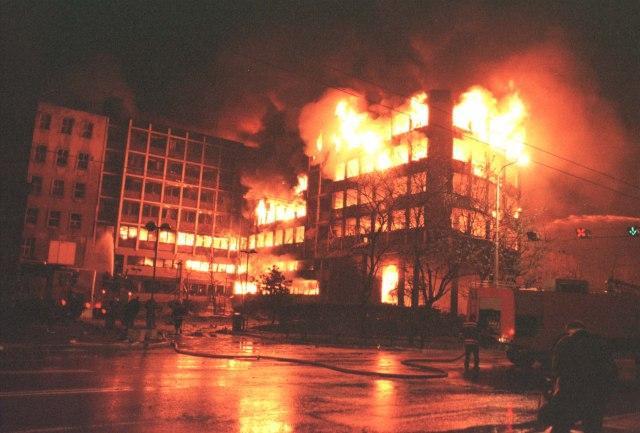
Karl Marx said that “History repeats itself first as tragedy then as farce.” We can see the same dynamics of the Yugoslavian situation playing out again in Iraq, Afghanistan, Libya, Syria and beyond, as the American public is duped again.
The mainstream media — which functions as the de facto spokesperson of the State Department — does not get it wrong. A key part of anti-imperialists’ training — dating back to the Zimmerwald Conference when socialists maintained that WWI was not fought in the interests of working people — is to read beyond the headlines and stay principled when imperialism goes into war drive. When our class enemies beat the war drums and pretend to appeal to Americans’ human compassion — as they do with every U.S. invasion — it is necessary to decipher what the empire’s true interests are. No matter how relentless, sensationalist and patriotic the barrage of propaganda, it is unacceptable to line up shoulder to shoulder as our oppressors at home relentlessly demonize inconvenient nationalist forces abroad. It is important to return to Malcolm X’s formulation: “If you’re not careful, the newspapers will have you hating the people who are being oppressed, and loving the people who are doing the oppressing.” Our defense of a nation’s right to defend themselves vis-à-vis foreign domination is not a blanket endorsement of their social systems. Surely every social system has its flaw and challenges, but this is no justification to dismantle the central state of the aforementioned countries.
As the billionaires run out of new markets to conquer, they are seeking to expand. China, Russian and the other strong, independent nations are demonized because they have resisted deeper penetration. The wars of the 21st century will be ignited along these lines and will come packaged in human rights rhetoric. Any nation who resists capitalist re-enslavement — Zimbabwe, the Bolivarian camp in Latin America, eastern Ukraine, Iraq, Libya, Syria, Cuba and the DPRK — is in the crosshairs. The hundreds of thousands of refugees who seek to cross the Mediterranean Sea into Europe are the very victims of these recolonization efforts. They have been defuturized by U.S./EU proxy wars. While the corporate media outlets lament the plight of the refugees, they do not utter an honest word about the source of this human conflagration. Libya, Syria, Yemen, Iraq and Afghanistan are today’s Yugoslavia. The greatest solidarity we can render to imperialism’s millions of victims is by challenging its power right here in the belly of the beast! Until then, in the words of the prophet of peace, Bob Marley, “Everywhere is war.”
[1] Dakovic, Mirko. The Center for Peace in the Balkans. March 22, 2001. “Destabilizing the Balkans: U.S. & Albanian Defense Cooperation in the 1990s.”
[2] Cited in the New York Times, March 28th 1999.
[3] The Soviet leadership was to blame for failing to unite with Yugoslavia on an anti-imperialist basis. This was due to the fact that post WWII, the Soviet Union agreed with the U.S. and Britain to divide up Southern Europe between the three powers, with Greece and Yugoslavia falling into the U.S./British sphere of influence and Bulgaria and Hungary falling into the Soviet orbit. Stalin then unjustifiably expelled Yugoslavia from the Socialist Camp at 1948 Cominform meeting accusing the Yugoslavs, among other charges, of “Nationalism; and, ‘counter-revolutionary Trotskyism.” This was a huge gift to imperialism. With his back against the wall, Tito soon after moved into a military alliance with NATO. He was a central figure along with Nasser, Sukarno, Nehru and Nkrumah in the non-aligned Bandung Conference of 1955, which objectively became drew the newly decolonizing countries away from the Soviet-led socialist camp.
[4] Several studies are cited in Titostalgia: A Study in Nostalgia for Josep Broz by Mitja Velikonja.

